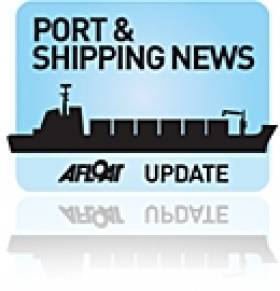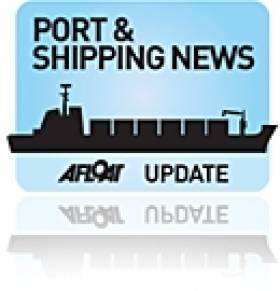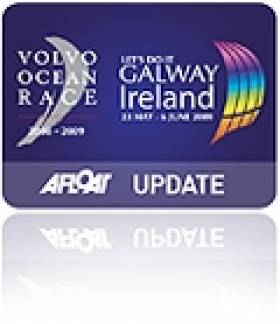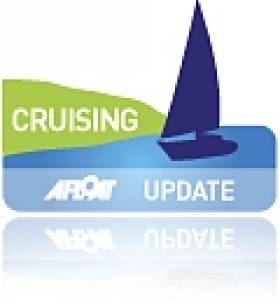Displaying items by tag: Pirate
Indian Ocean Pirates Ready to Attack
MC Northwood's Chief of Staff, Rear Admiral Hank Ort (NLD N) states, "in the last few years, it has been the case that come October when the South West monsoon weakens, the pirates have been able to put to sea and we have seen the number of attacks on merchant vessels increase. We are warning vessels that reports show that there are pirate groups operating already in the Indian Ocean, Arabian Sea and Gulf of Aden. Merchant vessels should ensure that Best Management Practices are followed and that vessels continue to make it as difficult as possible for pirates to board and take control of their ships. Our Naval forces are not complacent and remain vigilant. Despite the lull in pirate attacks over the summer due to the monsoon they have continued to patrol throughout the region."
New NATO Website to Combat Piracy Goes Live
Having received a briefing on the new website, the Commander of MC Northwood, Admiral Sir Trevor Soar KCB OBE said;
"Piracy is a serious threat for the shipping community and anything that can be done to deal with and overcome this issue is to be welcomed. The NATO Shipping Centre has listened to their users and responded to their needs with a new, more interactive and relevant website demonstrating that NATO and the shipping community are working together to tackle the scourge of piracy."
Piracy Threat Forces Volvo Ocean Race Route Change
The escalating piracy problem in the Indian Ocean has forced organisers of the Volvo Ocean Race 2011-12 to redraw the routes for the second and third legs.
The boats were due to have sailed through an East African corridor in the Indian Ocean on the second leg from Cape Town to Abu Dhabi and again in the third leg from Abu Dhabi to Sanya in China but after taking advice from marine safety experts and the sport's governing body, the International Sailing Federation (ISAF), the routes have been changed.
The boats will now race from Cape Town to an undisclosed 'safe haven' port, be transported closer to Abu Dhabi, and then complete the leg from there. The process will be reversed for the third leg before the race continues on to Sanya.
"This has been an incredibly difficult decision," said Volvo Ocean Race Chief Executive Knut Frostad. "We have consulted leading naval and commercial intelligence experts and their advice could not have been clearer: 'Do not risk it.'
"The solution we have found means our boats will still be racing into Abu Dhabi and competing in the in-port race there.
"Abu Dhabi is a very important part of our plans, a real highlight being the race's first-ever stopover in the Middle East, and we will now have a really exciting sprint finish to the emirate over the New Year period as well."
Abu Dhabi will host the race from December 30 to January 14 with a purpose-built race village at its Corniche waterfront site and a headline New Year's Eve concert amongst various festivities set to provide a spectacular welcome to more than 100,000 visitors.
"The measures taken by the Volvo Ocean Race are very much in line with the advice that the International Sailing Federation has been giving for some time." said ISAF Secretary General Jerome Pels. "The ISAF strongly urges all yacht skippers intent on sailing anywhere in the area to seek an alternative, which the Volvo Ocean Race is now providing."
Cruising Association Shocked by Fatal Shootings
Scott Adam was a member of the Cruising Association and was taking part in the round-the-world Blue Water Rally.
The Cruising Association is Britain's leading organisation for cruising sailors with members worldwide and works closely with government and other agencies to represent the interests of cruising yachtsmen including combating the menace of piracy.
"Our thoughts are with the family and friends of those who died", the statement ended.
Sky Set Sail for “Treasure Island” Shoot
Shooting is scheduled for a five-week period, starting late November in Dublin and Cork. The Earl of Pembroke is currently berthed at Dun Laoghaire's Carlisle Pier, where SquareSail crew are adapting the vessel in preparation for shooting which includes the use of the East Pier Battery. Also assisting the shoot will be the Irish National Sailing School (INSS) based in Dun Laoghaire, which for over twenty years has provided marine co-ordination services for film and TV work.
The two-part, 120 minute drama was commissioned for the Sky 1 HD TV channel. The director is Steve Barron (Arabian Nights, Merlin, England Manager) and the producer is Laurie Borg (Made in Dagenham, Little Voice, Sense and Sensibility). Also coming on-board the film-team are Irish costume designer, Lorna Marie Mugan (Killing Bono) and line producer Des Martin (Tara Road).
In the New Year the production moves to the Caribbean island nation of Puerto Rico. It is expected that the drama be released on Sky 1 HD TV in Christmas 2012.
The Earl of Pembroke is owned by Cornwall based SquareSail which specialises in providing tall-ships for film productions. The Swedish built vessel was launched as Orion in 1948 and worked bringing timber from Scandinavia to the UK. In 1974 the vessel was laid-up for several years until SquareSail purchased her in 1979. She underwent an extensive restoration programme to emerge in 1994 in the appearance of an 18th century barque.
Setting 9,500 square foot of sails, the tall-ship has 14 sails. Should the winds be slack, the 174 ton vessel has a MAN 6 –cylinder, 300hp engine which drives a three-bladed propeller. As for her silver-screen credits, they include Cutthroat Island, Frenchman's Creek, Hornblower Series III and Longitude.
Treasure Island follows the recent filming of Neverland which included shooting locations in Dalkey and Killiney in Co. Dublin and neighbouring Co. Wicklow. Both productions are part of a multi-million pound investment by Sky for their high-definition (HD) drama department.
Looking for further reading on Tall Ships in Ireland? Click the links below:
Click this link to read all our Tall Ships Stories on one handy page
Previewing Ireland's Tall Ships 2011 Season
Can Ireland Get a New Tall Ship?
































































